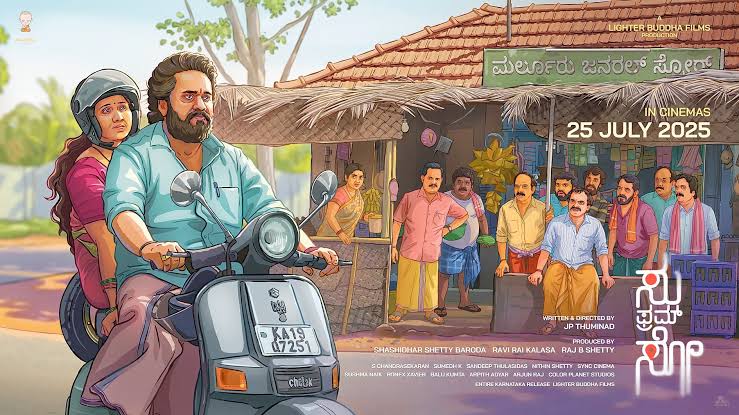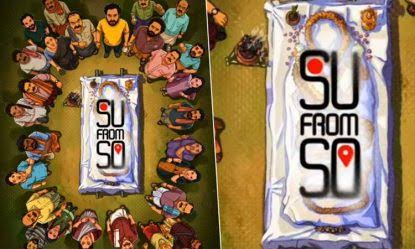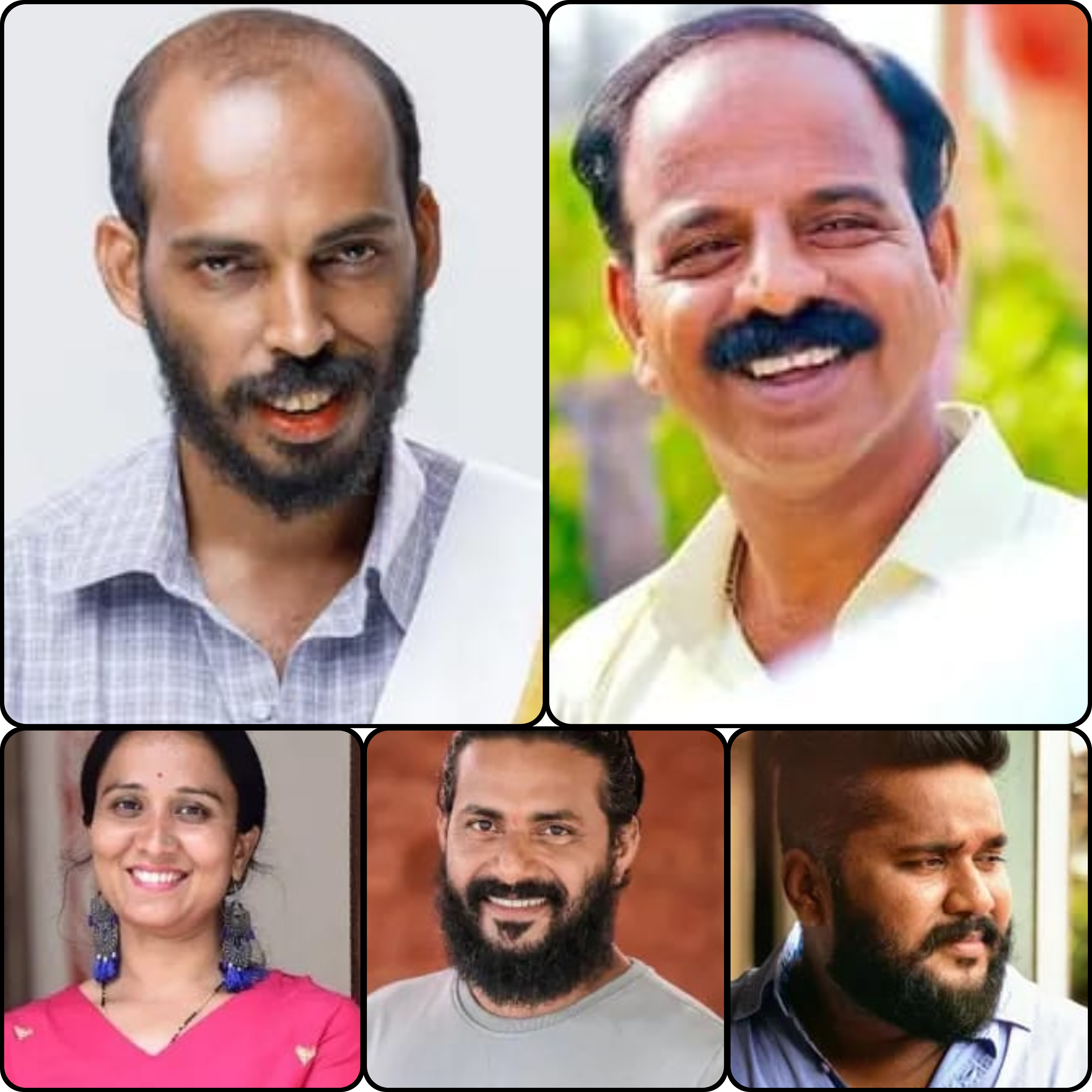Prof. P.Archibald Furtado
The buzz surrounding the Kannada film "Su from So" had already gripped movie lovers across the state, and I too couldn’t resist the hype. With theatres like Kalpana, running houseful - quietly reminded the scene of 40 years ago, as the students of College half of the academic year spent in talkies, bunking classes —then headed towards Udupi's Bharat Cinema—we finally managed to grab the tickets, and what followed was a delightful cinematic experience packed with laughter, satire, and subtle brilliance.

At first glance, Su from So is a laugh riot—brimming with comic moments, clever dialogue, and quirky characters. The screenplay flows smoothly, keeping the audience engaged and amused throughout. It checks all the boxes of a crowd-puller: humour, pacing, and performances.

But beneath the surface-level entertainment lies the real treasure—the film’s core message. Without ever being preachy or disrespectful, Su from So boldly addresses deep-rooted superstitions, especially those surrounding Bhoota, Preta, and beliefs related to spirits of the dead. What’s commendable is the way the director handles such a sensitive subject with dignity, ensuring that religious sentiments and cultural practices are not ridiculed—but rather, gently questioned.
One of the strongest takeaways from the film is its fearless critique of fake mantravadis and self-styled tantric who exploit people’s fears for financial gain. With wit and wisdom, the movie exposes these conmen, giving the audience not just laughs, but also moments of reflection.
"Su from So" stands out for its perfect blend of entertainment and enlightenment. It’s rare to find a film that makes you laugh out loud while also nudging you to think, question, and perhaps unlearn a few things.
If you’re looking for more than just popcorn fun—something that stays with you even after the credits roll—"Su from So" is definitely worth watching. A must-watch Kannada film with its heart in the right place.

In brief about the story line: Su from So – In one sentence, a Spirit, Silly, and Sneakily Insightful Horror-Comedy. Set in the coastal village of Marlur, just north of Someshwara, a place located under the shades of Western Ghats, Su from So vividly captures rural life in Udupi District in Coastal Karnataka. The simple, close-knit world of village folks is shaken when a young man, Ashoka (JP Thuminad), begins behaving as if possessed by Sulochana, a spirit from Someshwara—the titular “Su” from So (Someshwara) .
Ashoka’s forced antics, first to save himself from embarrassment and punishment, spiral into chaos as villagers’ suspect supernatural involvement. Meanwhile, Bhanu (Sandhya Arekere)—the daughter of the alleged spirit—enters his life, enabling Ashoka to confront hidden truths about her traumatic past. What begins as a goofy possession tale slowly transforms into a heartfelt narrative about grief, guilt, and community norms.
Few noteworthy performances:
This debut film is powered not by stars but by strong ensemble acting, JP Thuminad (Ashoka/Director) strikes a compelling arc: from slacker youth to conflicted central figure, balancing playfulness and subtle intensity.
Shaneel Gautham as Ravi Anna is the emotional anchor—charming, tough, yet revealing cracks of vulnerability.
Sandhya Arekere (Bhanu) delivers the film’s emotional core. Her measured, authentic performance brings both gravitas and empathy.
The supporting ensemble—including Prakash K. Thuminad, Deepak Rai Panaje, Mime Ramdas, and Arjun Kaje—delivers natural, quirk-filled performances that enrich the film’s earthy ambience.
Raj B. Shetty’s surprise cameo as a satirical guru plays like a wink at real spiritual influencers, walking the fine line between faith and farce without disrespect – All done justice to their respective roles probably as expected…
Direction & Vision
JP Thuminad marks a confident directorial debut, showing remarkable control over tone—comedy, absurdity, and emotion coexist without slipping into peachiness’. His writing uses humour as camouflage for deeper societal critiques, especially around superstition, masculinity, and how women’s stories are dismissed in folklore-heavy cultures.
The setting gets captured with remarkable authenticity—candid camera frames show coastal life in all its rawness without artifice. Even minor scenes pulse with the rhythm of village existence—tea shops, gossip, rituals, and rituals gone awry. The storytelling stays grounded yet layered.
Music & Cinematic Style:
In short, Sumedh K, the young composer, delivers hummable melodies woven into the narrative—particularly “Danks Anthem,” a groovy and popular song that’s already making waves in gatherings and parties. Sandeep Thulasidas’s background score underpins both comedy and emotional beats with precision, giving the film rhythmic cohesion. S. Chandrasekaran’s cinematography showcases coastal Karnataka with natural beauty—lush frames, earthy tones, and lived-in frames that feel both intimate and cinematic.
In the end, as stated in the very beginning, Su from so is more than just a horror-comedy. At its best, it’s a graceful satire on superstition, a quiet commentary on gender biases, and a celebration of coastal life and local storytelling. A fresh and youthful production—rich in personality, devoid of star baggage, and full of bold creativity—it surprises at every turn.
It’s silly at first, first30 minutes, but beneath the laughter is emotional gravity that builds patiently and pays off subtly. If you appreciate films that surprise, subvert, and stay with you after you leave the theatre, Su from so is a must-watch, paisa Vasool, in contemporary Kannada cinema.
P. Archibald Furtado.
